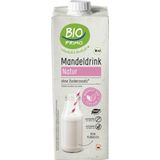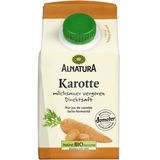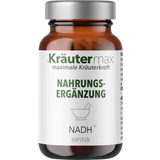Magnesium - A Vital Jack of All Trades
A cramp in the calf is the most recognizable sign of a magnesium deficiency, however, it is not the only one. These range from fatigue to depression and all the way through infections. Today, more and more people suffer from magnesium deficiency, but most are not even aware of it. An increase in magnesium deficiency is not entirely lost on industrial agriculture and the modern, western lifestyle.
Without magnesium, there would be no life on Earth. It is as essential for humans as it for plants. Each individual cell in the human body requires magnesium, and this ensures the functioning of the nervous system and even has an effect on the strength of our bones.
The daily magnesium requirement depends on many different factors. These factors include age, sex and weight and height, therefore the recommended daily amount for each individual may vary greatly. The recommendations for adults range from 350 mg to 1200 mg per day. However, not all experts agree with these values. An increased requirement for magnesium occurs when the body is put under stress, during physical activity or the excessive consumption of alcohol, black tea or soft drinks.
One problem is that the body does not receive all of the magnesium supplied through the consumption of food. Only about one third is absorbed by the intestine. It also depends on portioning. Magnesium must be bound in the body in order for it to be used efficiently. When there are not enough binding molecules available, magnesium cannot be absorbed and used. Therefore, it is recommended to consume smaller quantities at regular intervals. Studies have confirmed this. When a daily dose of 360 mg is consumed, only about 18 percent is absorbed by the body, and only 35% is absorbed with an intake of 120 mg.
Unfortunately, magnesium deficiency symptoms have increased and have been linked to industrial agriculture. The soil is leached out and is treated with stronger chemical fertilizers that contain no magnesium. The combination of industrially produced food and unbalanced nutrition occur as a result.
There are a number of possibilities when it comes to covering the daily requirements for magnesium. Generally, a healthy and balanced diet that includes freshly cooked meals is sufficient for preventing magnesium deficiency. Food sources that are rich in magnesium are pumpkin seeds, cocoa, quinoa, legumes, nuts, seeds (sesame, poppy, etc), vegetables, fruits, whole grain bread, oatmeal and amaranth.
However, especially in this day and age, it is not always possible to eat a balanced diet. Dietary supplements can help fill the gap in these cases. Choosing the best dietary supplement, it depends on individual factors. Magnesium supplements are available that are combined with organic acids (magnesium salts) such as citrate or gluconate. There are also numerous mixed preparations, which also include vitamins or calcium.
However, keep in mind what was said by Paracelsus centuries ago: "Dosis facit venenum", which means "the dose makes the poison". A high dosage can cause many unwanted side effects (arrhythmia, nausea, vomiting, diarrhoea, muscle paralysis, drop in blood pressure, etc.). Therefore, the recommended dosage quantities should always be strictly adhered to.
Latest reviews
-
 4.9 (8)
4.9 (8)BIO PRIMO Organic Almond Drink, Original, 1 l
- Strong almond aroma
- For mixing and cooking
- Organic almonds from Italy
€ 3,59 (€ 3,59 / l)Delivery by January 02
-
 5.0 (2)
5.0 (2)Ölmühle Solling Organic Celyon Cinnamon, 180 g
- Finely ground
- Made from whole cinnamon sticks
- Purely herbal product
€ 8,99 (€ 49,94 / kg)Delivery by January 02
-
 4.1 (7)
4.1 (7)Alnatura Organic Carrot - Lacto-Fermented Freshly Pressed Juice, 500 ml
- 100% freshly pressed juice
- Rich in provitamin A
- Suitable for drinking and cooking
€ 1,79 (€ 3,58 / l)Delivery by January 02
-
 5.0 (1)
5.0 (1)Kräuter Max NADH+, 60 capsules
- Nicotinamide adenine dinucleotide hydride
- Plant-derived BioVXR® capsule shell
- Just 1 capsule daily before a meal
€ 79,99 (€ 2.666,33 / kg)Delivery by January 02
